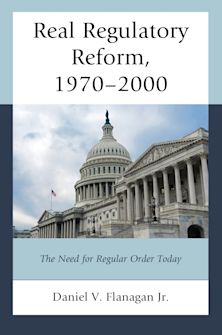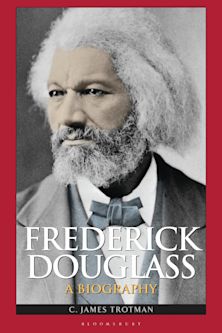American Progressivism
A Reader
- Textbook
American Progressivism
A Reader
- Textbook
For information on how we process your data, read our Privacy Policy
Description
American Progressivism is a one-volume edition of some of the most important essays, speeches, and book excerpts from the leading figures of national Progressivism. It is designed for classroom use, includes an accessible interpretive essay, and introduces each selection with a brief historical and conceptual background. The introductory essay is written with the student in mind, and addresses the important characteristics of Progressive thought and the role of Progressives in the development of the American political tradition. Students of American political thought, American politics, American history, the presidency, Congress, and political parties will find this reader to be an invaluable source for insight into Progressivism.
Table of Contents
Chapter 2 Preface and Acknowledgements
Chapter 3 Introduction to American Progressivism
Part 4 I The Principles of Progressivism
Chapter 5 A. Who is a Progressive?
Chapter 6 B. Excerpr fromThe New Freedom, Chapter 2
Chapter 7 C. The American Conception of Liberty
Part 8 II Progressive Interpretations of History
Chapter 9 A. The Significance of the Frontier in American History
Chapter 10 B. Excerpt fromAn Economic Interpretation of the Constitution of the United States, Chapter 1
Part 11 III Social Justice, Social Gospel, and Education
Chapter 12 A. Subjective Necessity for Social Settlements
Chapter 13 B. Social Christianity and Personal Religion
Chapter 14 C. The Socializing of Property
Chapter 15 D. My Pedagogic Creed
Chapter 16 E. Father Blakely States the Issue
Part 17 IV Leadership and the American Presidency
Chapter 18 A. Leaders of Men
Chapter 19 B.Excerpt from Constitutional Government in the United States, Chapter 3
Chapter 20 C. Inaugural Address, 1905
Chapter 21 D. Excerpt from An Autobiography, Chapter 10
Part 22 V National Administration
Chapter 23 A. The Study of Administration
Chapter 24 B. The New Nationalism
Part 25 VI Parties & Direct Democracy
Chapter 26 A. Excerpt from La Follette's Autobiography, Chapter 8
Chapter 27 B. Excerpt fromProgressive Democracy, Chapters 12 and 13
Part 28 VII The Election of 1912
Chapter 29 A. Progressive Platform of 1912
Chapter 30 B. Excerpt fromProgressive Democracy, Introduction
Part 31 VIII Progressivism, War, and Peace
Chapter 32 A. War Message to Congress, April 2, 1917
Chapter 33 B. Opposition to Wilson's War Message
Chapter 34 C. Fourteen Points
Chapter 35 Index
Chapter 36 About the Editors
Product details
| Published | May 02 2008 |
|---|---|
| Format | Ebook (PDF) |
| Edition | 1st |
| Extent | 340 |
| ISBN | 9798881880941 |
| Imprint | Lexington Books |
| Publisher | Bloomsbury Publishing |
Reviews

ONLINE RESOURCES
Bloomsbury Collections
This book is available on Bloomsbury Collections where your library has access.



































